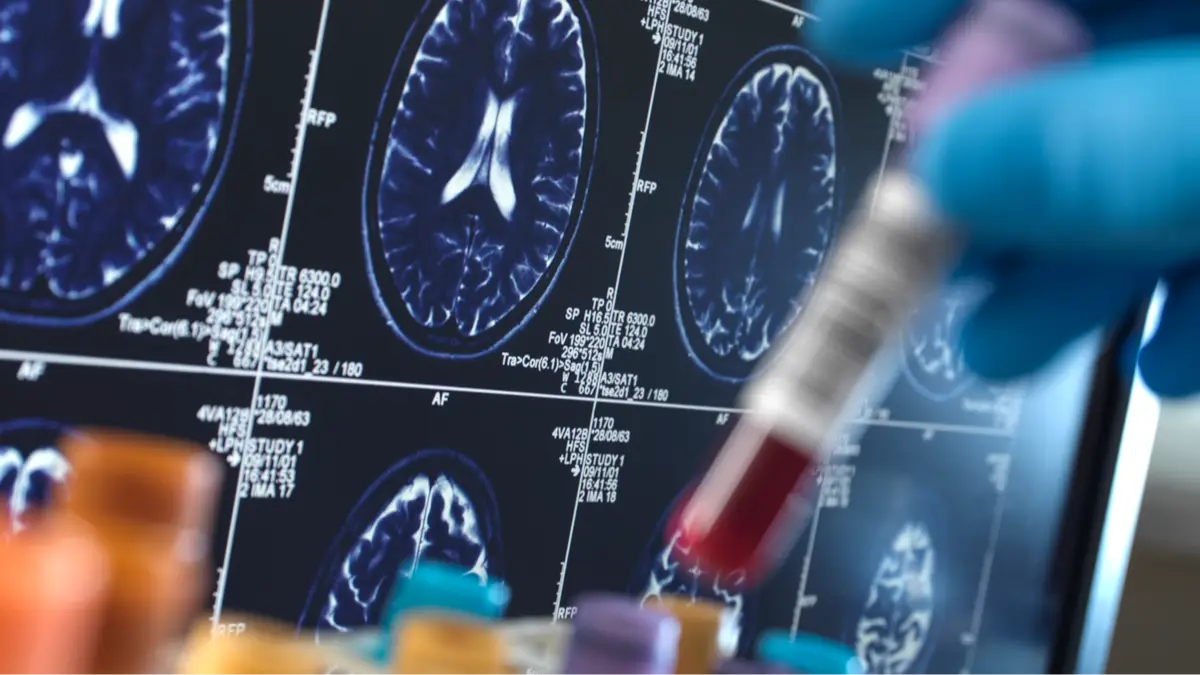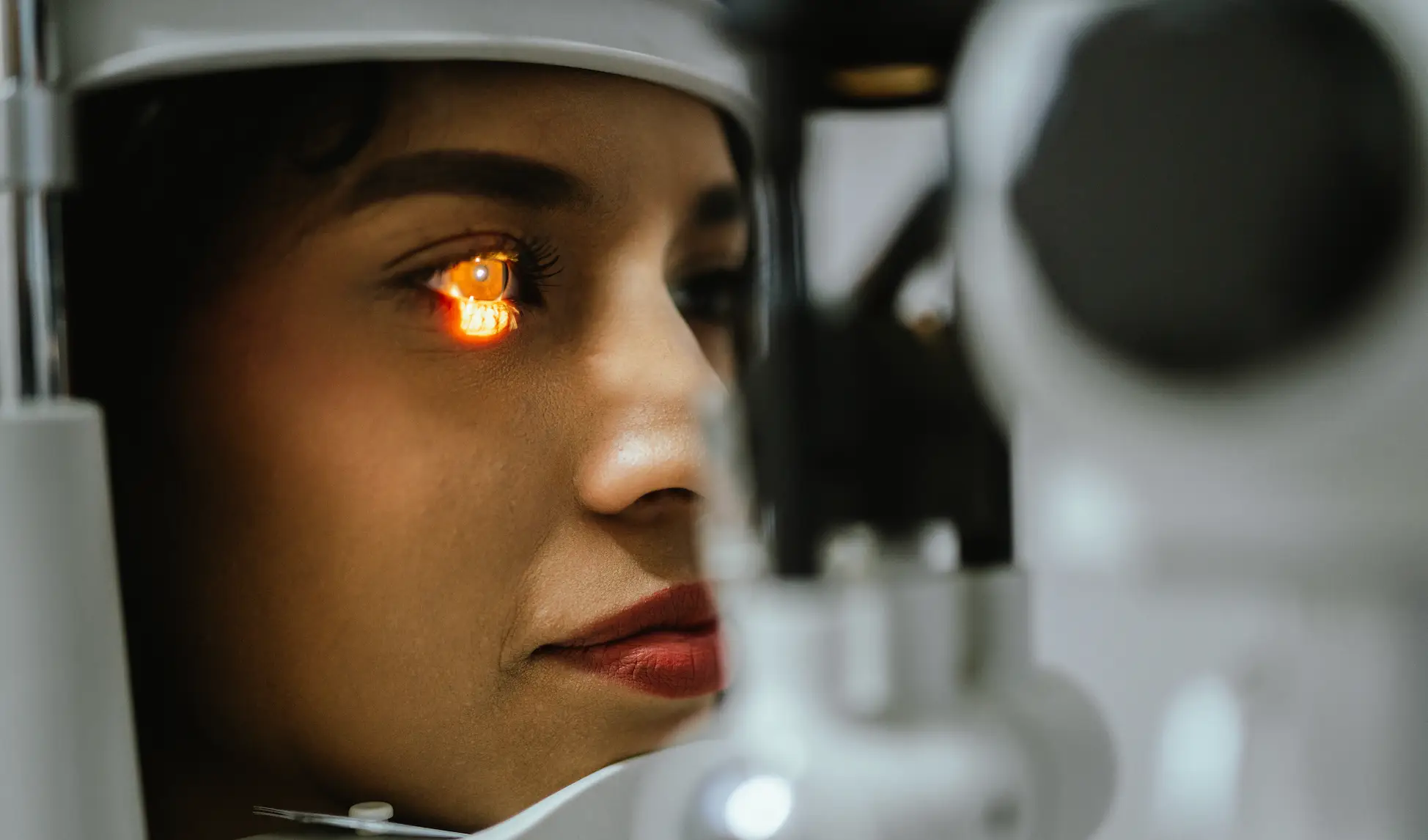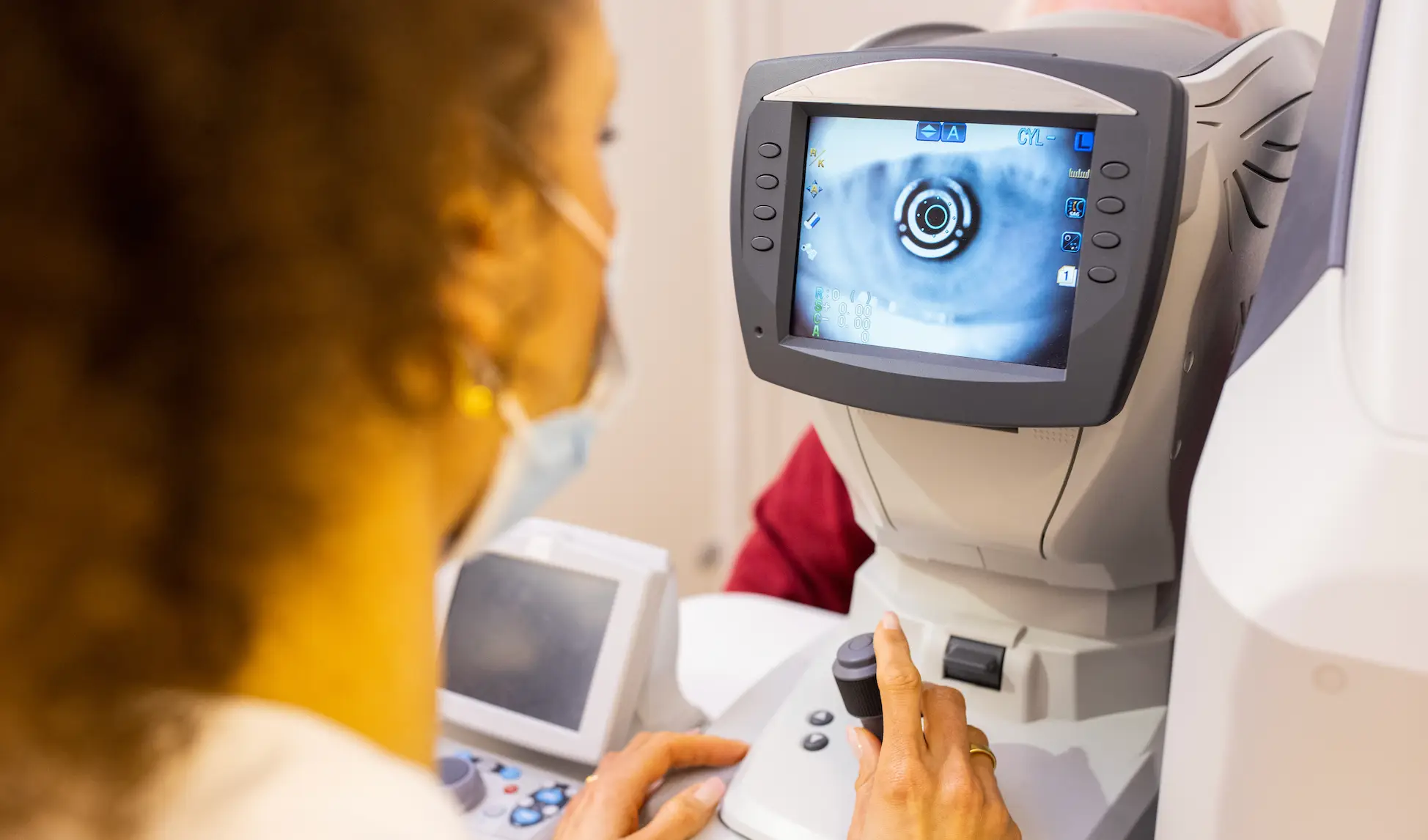
A study has looked into whether a simple test could help predict and intervene early against Alzheimer's disease and related dementias.
A study has looked at whether or not the retina in the eye could contain biomarkers - biological indications - that someone may develop Alzheimer's disease and related dementias (ADRD) and subsequently help with early detection.
The retina is 'the only part of the central nervous system that can be observed directly' and is 'readily imaged using non-invasive, cost-effective, and widely available technology, including optical coherence tomography (OCT) and retinal fundus photography, two imaging modalities available at most eye clinics and from many retail optometrists'.
So, the study sought to uncover how the retina could 'reflect brain health' and in particular, whether or not it could indicate whether or not someone will likely go through 'neurodegenration in midlife' - i.e. Alzheimer's.
Advert
Alzheimer's disease and frontotemporal degeneration (FTD), Lewy body dementia (LBD), vascular contributions to cognitive impairment, and dementia (VCID), and multiple-etiology dementias (MED) are all included in the US National Plan to Address Alzheimer's Disease.
The study, published in the Journal of Alzheimer’s Disease, states that 'retina-based biomarkers have been associated with each of these conditions' alongside 'early cognitive decline and mild cognitive impairment (MCI) at older ages'.
However, there's less evidence as to whether retina's biomarkers can be used when it comes to a specifically middle-aged population.

The eye test and dementia
New Zealand’s longest-running longitudinal study used date from the eye scans from a study called Dunedin.
Participants in the study were assessed at birth and then 'ages 3, 5, 7, 9, 11, 13, 15, 18, 21, 26, 32, 38, and most recently at age 45 (2016–2019), when 94 percent of the 997 living Study members participated'.
The eye scans looked at three measures - the 'retinal neuronal (retinal nerve fiber layer (RNFL) and ganglion cell–inner plexiform layer (GC-IPL)) and microvascular (arterioles and venules)'.
The study then took the test results and compared them to current 'measures of midlife risk for Alzheimer's disease and related dementia' - the measures including The Cardiovascular Risk Factiors, Ageing, and Incidence of Dementia (CAIDE) index,' The Lifestyle for BRAin health (LIBRA) index, The Australian National University Alzheimer's Disease Risk Index (ANU-ADRI), Modifiable risk factors selected by the Lancet Commission on Dementia (Lancet) and 'A comprehensive midlife index, the Dunedin ADRD Risk Benchmark (DunedinARB), comprised of 48 putative ADRD risk indicators organized into 10 conceptually distinct risk domains'.
The study then looked at whether those who ranked higher risk on those scales had certain results in terms of their eye scan results and if any patterns emerged.

Results of the eye test
The study revealed participants with thinner retinal neuronal integrity were 'statistically significantly more likely to be classified as having higher midlife ADRD risk' - 'although the associations were modest,' it added.
Participants with 'smaller retinal arterioles and wider retinal venules were statistically significantly more likely to be classified as having higher midlife ADRD risk' too.
The study detailed: "First, neuronal and microvascular measures of retinal health were found to distinguish gradients of an individual's midlife risk for later ADRD, as indexed by five dementia risk indexes that capture multifactorial preclinical risk for later dementia.
"While each dementia risk index selects a different set of risk factors, all have been found to predict later dementia, with some, such as the CAIDE, across 20–40 years of follow-up.
"The current findings support the hypothesis that measures of retinal integrity could be useful biomarkers for indexing wider ADRD risk, even in midlife. Notably, at this age and in this population, retinal microvascular measures were much more strongly associated with ADRD risk than were retinal neuronal measures."
But what does this mean for the future?

What does this mean for the future of dementia research?
The study subsequently resolved in the future, 'retinal microvascular imaging may be an accessible, scalable, and relatively low-cost method of assessing ADRD risk among middle-aged adults.' however, co-lead author Dr Ashleigh Barrett-Young told Stuff: "We can’t predict your future looking at an eye scan.
"Hopefully, one day we’ll be able to use AI methods on eye scans to give you an indication of your brain health, but we’re not there yet."
If you've been affected by dementia or Alzheimer's and would like to speak with someone in confidence, contact the Alzheimer's Association via 800.272.3900 open 24 hours seven days a week.
Topics: Health, US News, World News, Mental Health